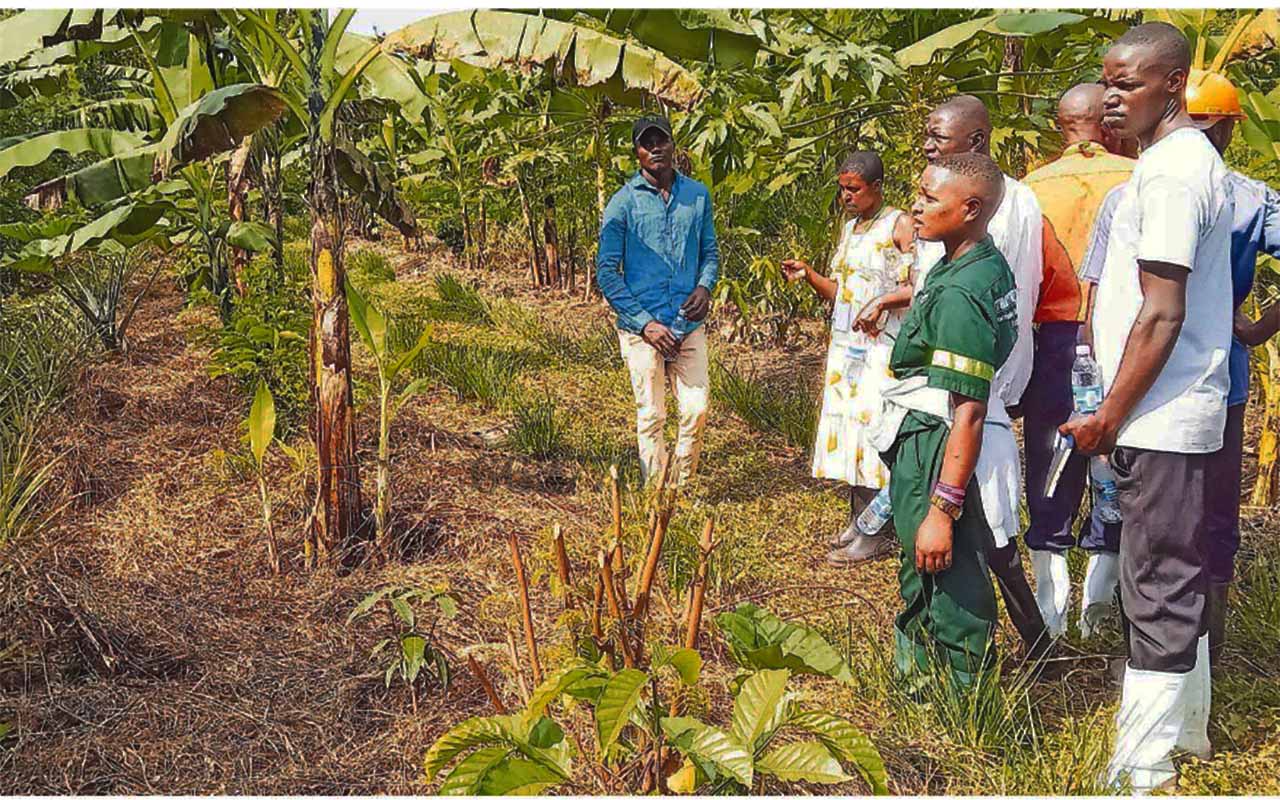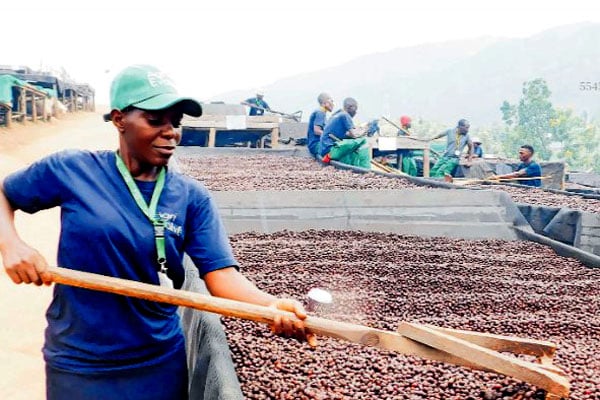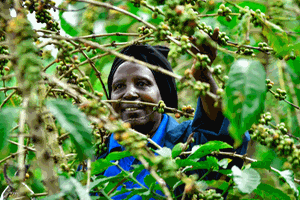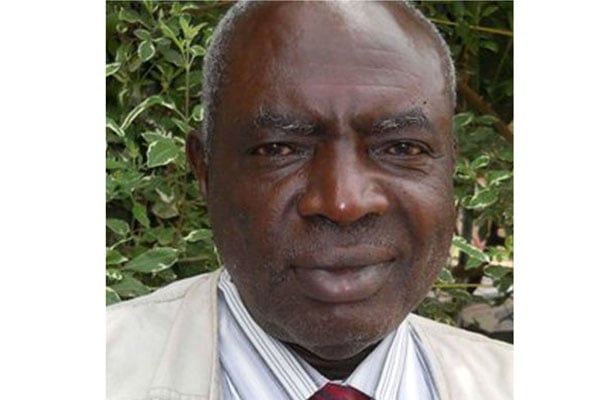
Farmers at a demonstraton garden for generative farming at Bethany Land Institute in Luweero District. PHOTO/DAN WANDERA
A mixture of leguminous plants that help manufacture nitrogen in the soil planted on the same plot including plant trees reduces the direct application foreign inputs while preserving the ecosystem but also ensuring that the farmer gets a good harvest.
The increasing pressure exerted on land as means of survival is pushing the farmer on to the wall with several actors now pushing for regenerative farming practices to save both nature and humans.
The clearing of trees and bushes for gardens and the increasing loss of the natural soil nutrients that characterises over 80 percent of the farmer approach to farming in Uganda according to a section of soil scientists is not sustainable.
Demonstration gardens
Mr Mike Ssegalungo, a conservationist and incubator overseeing the setting up of regenerative farming practices demonstration gardens at Bethany Land Institute in Luweero District, explains that over exposure to direct sun heat kills the soil microorganisms.
Because the farmers opt to have plain land without any vegetation left in preparation for the planting, the soils struggle to maintain the microorganisms that help manufacture the natural soil nutrients.
“Under regenerative farming, the farmer can have different crops on the same plot targeting the natural ways of protecting the soil nutrients without applying any synthetic fertilisers. You can intercrop, apply mulching and have minimum tillage of the land to protect the soil health,” he says.
Apply fertiliser
For lands that have already lost the natural vegetation, Ssegalungo explains that the continued application of synthetic fertilisers provides no guaranteed sustainability plan for the soil health.
The farmers are being introduced to farming models that allow the planted crops to generate the soil nutrients naturally.
A mixture of leguminous plants that help manufacture nitrogen in the soil planted on the same plot including plant trees reduces the direct application foreign inputs while preserving the ecosystem but also ensuring that the farmer gets a good harvest.
Mr Sylvester Kule, a conservationist based at Bethany Land Institute believes that farmers should be encouraged to adopt regenerative farming methods in light of the vast loss of soil fertility, natural vegetation as a result of poor farming practices.
“We are talking about areas that have lost the natural land cover due to the careless practices that include the natural vegetation clearing without replacement. Regenerative farming is not about smallholder farming alone. Even farmers targeting large acreage are encouraged to naturally protect the soil nutrients,” he says.
In helping the farmer not overstretch the available resources in search of synthetic fertilisers to the already barren land, planning to rehabilitate the soils the natural way is a sustainable practice that accommodates even low income earners that may not afford the fertilisers, Mr Kule reveals.
“We emphasise intercropping which is a major component when applying regenerative farming. The practice is about restoration of lost nutrients using natural methods but also aiming for high yield harvest for the respective crops. The other addition is the plant trees in the garden,” he says.
Ecological benefits of plant trees
Mr Kule explains that plant trees help the soils to remain together through the tree roots.
The roots also break the soils to allow more water penetration.
The trees that are selected should be able to attract the birds, insects among other microorganisms.
The birds’ droppings, the pollination by the insects adds value to the crops, he says.
In planning the regenerative farm gardens, selected tree plant species are encouraged where some act as pest repellants, medicinal while the leaves that drop from the trees help improve the soil health.
Mr Edward Ssemakula, an agriculturalist who is practicing regenerative farming at Lumpewe village, Kikamulo Sub County in Nakaseke District explains the type of trees that can be intercropped with other crops that include the nut trees, fruit trees and the multipurpose trees that include the Moringa which is medicinal with several other listed values.
“I have incorporated fruit trees in my gardens and the results are good. I have been able to promote ecological balance and improve agricultural productivity on my farm. The advantage with regenerative farming is allowing the soils to be self-reliant without adding synthetic fertilisers,” he says.
At Nandere parish in Nyimbwa Sub County where model regenerative farming practices have been rolled out to a section of the farming population, emphasis is on soil health improvement and increased farm output.
The farmers should be able to have multiple benefits from the same plot at the farm while protecting the soil health.
Mr Ray Archuleta, a certified soil scientist and member of the soil science society of America now helping farmers in rediscovering the lost soil glory at Nandere Parish in Luweero District has called for deliberate health soil practices targeting planting of trees and use of the natural ways of regenerating soil fertility.
“The proper application of natural farming practices can help revive the lost soil glory and reverse the desert conditions,” he said recently at a sensitization program for farmers in Luweero District.
Dr Arnold Baker Wesonga, a retired agricultural officer but also implements the regeneration farming practices, is rallying for sensitisation of the farmers about the importance of nature and soil nutrients preservation.
"Regenerative farming is the way to go but the lack of information among the farming population remains a challenge. Regenerative farming will help redeem nature and the soils that have lost fertility," he says.
Advice
Mr Sylvester Kule, a conservationist based at Bethany Land Institute believes that farmers should be encouraged to adopt regenerative farming methods in light of the vast loss of soil fertility, natural vegetation as a result of poor farming practices.







